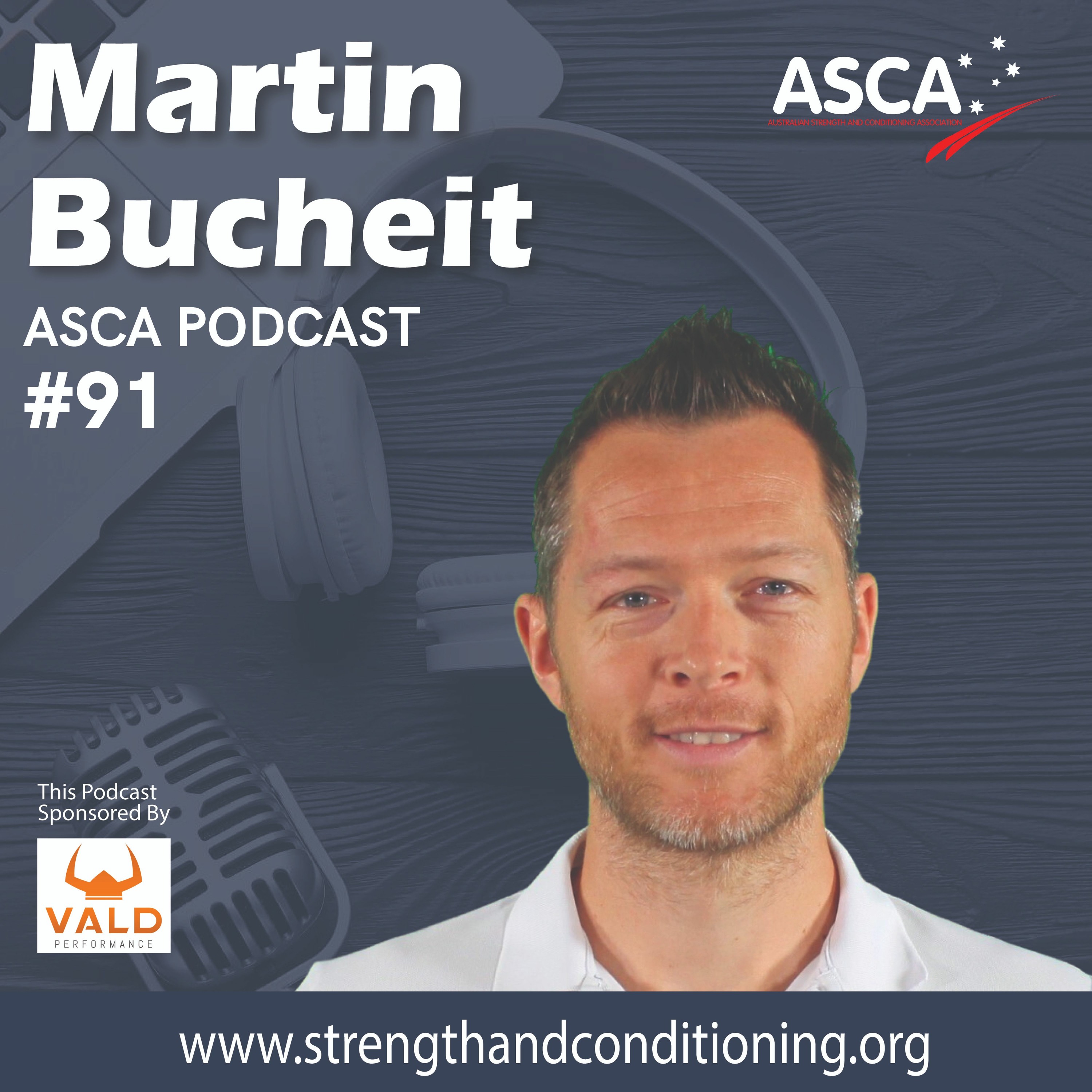
Martin Buchheit is a very passionate strength and conditioning coach that progressively developed into an applied sport performance scientist, with a main emphasis on football (soccer). Martins (>200 publications) focused on intervention strategies and profiling assessments that may improve players’ physical and technical potential, using a scientific approach whenever possible. By using his background in strength & Conditioning (2 Msc), statistics (1 Msc) and his PhD in exercise physiology, he developed different training 'tools' such as the 30-15 Intermittent Fitness to program high-intensity interval training (HIIT) and the 5'-5' (now 4'-3') running test to monitor training status using accelerometers, GPS and heart rate (variability). Currently, Martin consults and speaks for various organizations, and holds the position of Head of Performance at Lille OSC, together with the role of Head of Performance Research at Kitman Labs, and helps lead up the Performance Intelligence Research Initiative.
QUOTES
“In the context of team sport, fitness does not often make the difference in winning or losing games”
“Teams that had high speed exposures two days before games had less hamstring injuries during matches two days after”
“We know if you look at contact time with a standardized same speed run, this can be indicative of acute fatigue”
“Any data that be collected through normal practices in a football team, I like it”
“The first discussion I had with the coaches I have worked with is tell me about the players and this is definitely the best way to start to build the interaction with coaches”
“People say you should leave your ego at the door but no, you just need to have the volume control so when you need it, turn it high and when you don’t need and need to collaborate, turn it down”
"What is important with the anerobic speed reserve concept is not the exact numbers but to understand the profiling that comes with it"
SHOWNOTES
1) Martin’s background as a strength and conditioning coach, researcher and sport scientist across the globe
2) Building performance on a foundation of athlete health and the importance of player availability
3) The science and art of designing a training microcylce between matches in football
4) Having a pragmatic view on the use of technology in sport and getting data from normal team practices
5) Super simple standardized warmups for autonomic nervous system and neuromuscular monitoring
6) Developing relationships, influencing the coaches you are working with and managing egos in high performance sport
7) The anaerobic speed reserve concept, bucketing athletes and deciding training methods for each athlete
PEOPLE MENTIONED
Paul Larsen
Raymond Verhiejen
Dan Plews
Nick Poulus
Marc Quod
view more
More Episodes
ASCA Podcast - Professor Paul Comfort II
 2024-10-28
2024-10-28
 2024-10-28
2024-10-28
ASCA Podcast #118 - John Hofman
 2024-10-20
2024-10-20
 2024-10-20
2024-10-20
ASCA Podcast #117 - James Baker
 2024-10-13
2024-10-13
 2024-10-13
2024-10-13
ASCA Podcast #115 - Dr. Steven Duhig
 2024-09-18
2024-09-18
 2024-09-18
2024-09-18
ASCA Podcast #114 - Shane Lehane
 2024-08-19
2024-08-19
 2024-08-19
2024-08-19
ASCA Podcast #113 - Dr. Simon Harries
 2024-07-18
2024-07-18
 2024-07-18
2024-07-18
ASCA Podcast #112 - Dan Howells
 2024-06-21
2024-06-21
 2024-06-21
2024-06-21
ASCA Podcast #111 - Ben Norcott
 2024-05-14
2024-05-14
 2024-05-14
2024-05-14
ASCA Podcast #110 - Nathan Spencer
 2024-04-30
2024-04-30
 2024-04-30
2024-04-30
ASCA Podcast #109 - Dr. Tim Suchomel
 2024-03-21
2024-03-21
 2024-03-21
2024-03-21
ASCA Podcast #108 - Brendan Inkster
 2024-02-20
2024-02-20
 2024-02-20
2024-02-20
ASCA Podcast #107 - Gavin Pratt
 2024-02-04
2024-02-04
 2024-02-04
2024-02-04
ASCA Podcast #106 - Dr. Lachlan James
 2023-12-22
2023-12-22
 2023-12-22
2023-12-22
ASCA Podcast #105 - Mike McGurn
 2023-11-28
2023-11-28
 2023-11-28
2023-11-28
ASCA Podcast #104 - Ross Smith
 2023-10-30
2023-10-30
 2023-10-30
2023-10-30
012345678910111213141516171819
Create your
podcast in
minutes
- Full-featured podcast site
- Unlimited storage and bandwidth
- Comprehensive podcast stats
- Distribute to Apple Podcasts, Spotify, and more
- Make money with your podcast
It is Free
- Privacy Policy
- Cookie Policy
- Terms of Use
- Consent Preferences
- Copyright © 2015-2024 Podbean.com






